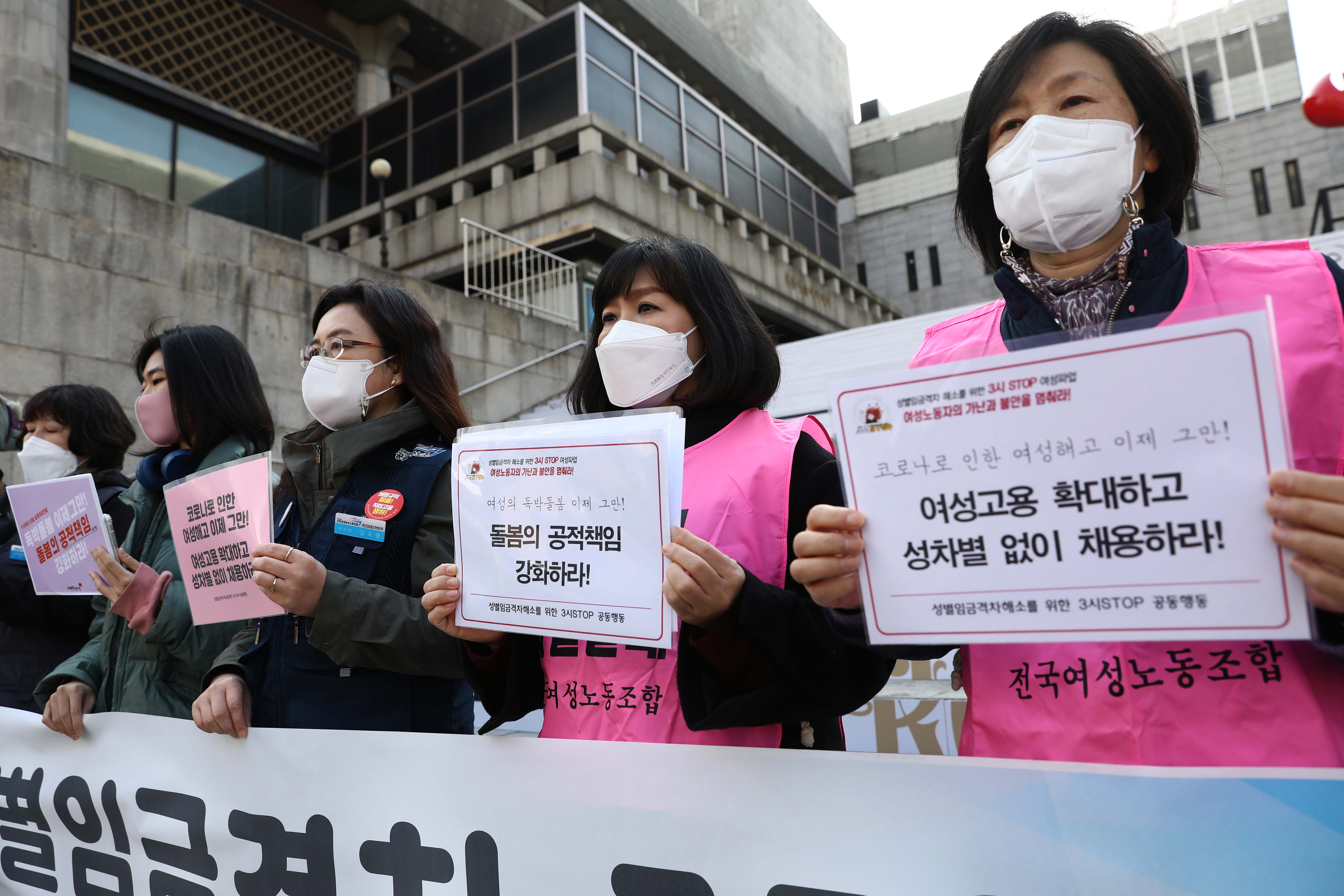South Korea: Backtracking on Rights Protections

(New York) – South Korean President Moon Jae-in weakened civil and political liberties and cracked down on North Korean rights activists operating in South Korea in 2021, Human Rights Watch said today in its World Report 2022. Moon’s government also failed to pass a comprehensive anti-discrimination law that would protect marginalized groups, including women, older people, children, people with disabilities, and ethnic, cultural, and sexual minorities. “President Moon Jae-in should devote his final months in office to passing a comprehensive anti-discrimination law that will transform his legacy as the leader who brought long overdue rights reforms to South Korea,” said Lina Yoon, senior Korea researcher at Human Rights Watch. “Sadly, President Moon hasn’t done much for human rights on the Korean peninsula, limiting civil and political rights in South Korea while making it harder for North Korean rights activists in the South to operate.” In the 752-page World Report 2022, its 32nd edition, Human Rights Watch reviews human rights practices in nearly 100 countries. Executive Director Kenneth Roth challenges the conventional wisdom that autocracy is ascendent. In country after country, large numbers of people have recently taken to the streets, even at the risk of being arrested or shot, showing that the appeal of democracy remains strong. Meanwhile, autocrats are finding it more difficult to manipulate elections in their favor. Still, he says, democratic leaders must do a better job of meeting national and global challenges and of making sure that democracy delivers on its promised dividends. Pervasive and widespread discrimination against marginalized groups remains a serious problem in South Korea.
The gender pay gap is the widest among nations that are members of the Organization for Economic Co-operation and Development (OECD). South Korea’s #MeToo movement continued its advocacy, but there was social backlash in 2021 with the rise of a “men’s rights” movement. Sexual harassment and abuse of women and girls continued unabated. Human Rights Watch’s June report, ‘My Life is Not Your Porn’: Digital Sex Crimes in South Korea, found there is continued widespread posting of explicit sexual images of women and girls without their consent, for which the government has failed to take meaningful steps to prevent.
The authorities refuse to accept the cases, behave abusively toward survivors, and create barriers for survivors to obtain case information or be heard by the court.
The lesbian, gay, bisexual, and transgender (LGBT) rights movement in South Korea grew but continued to face hostility. A Human Rights Watch report in September found that young LGBT people experience severe isolation and mistreatment in schools, including bullying and harassment.
There were repeated instances of discrimination based on gender identity, exclusion of LGBT issues from school curricula, and a failure by schools to provide mental health support for students. South Korea has a generally open and democratic governing system, with a relatively free media and lively civil society, but in 2021 the government amended laws and created a chilling effect on freedom of expression. In December 2020 the South Korean government amended the National Intelligence Service Act, which uses broad and vague language, and authorizes the National Intelligence Service (NIS) to collect information under the abusive and outdated National Security Law, which criminalizes dissemination of North Korean “propaganda,” or having relations with or praising any undefined “anti-government organization.” It also adopted the Amendment to the Development of Inter-Korean Relations Act, known as the anti-leaflet law, which imposed strict limitations and disproportionate punishment on individuals and civil society groups that send unauthorized information, including leaflets, printed materials, and computer memory devices across the border from South Korea to North Korea. In September, the South Korean government, facing serious criticism, shelved amendments to the Press Arbitration Law, which contained vague language and disproportionate sanctions for any reporting that the government considered to be false.
The South Korean government again declined to cosponsor the annual United Nations resolutions on North Korean human rights at the UN Human Rights Council and the General Assembly. South Korea has yet to fully implement the North Korean Human Rights Law that came into effect in September 2016 and did not establish a foundation designed to support work on North Korean rights or appoint an ambassador at large on North Korean human rights.
Read the full article at the original website
References:
- https://www.hrw.org/world-report/2022/country-chapters/south-korea
- https://www.hrw.org/world-report/2022
- https://www.hrw.org/about/people/lina-yoon
- https://www.hrw.org/about/people/kenneth-roth
- https://www.hrw.org/world-report/2022/autocrats-on-defensive-can-democrats-rise-to-occasion
- https://www.hrw.org/report/2021/06/16/my-life-not-your-porn/digital-sex-crimes-south-korea
- https://www.hrw.org/news/2021/09/14/south-korea-lgbt-students-face-bullying-discrimination
- https://www.hrw.org/news/2020/12/22/south-korea-revise-intelligence-act-amendments
- https://www.hrw.org/news/2015/05/28/south-korea-cold-war-relic-law-criminalizes-criticism
- https://www.hrw.org/news/2021/02/18/human-rights-watch-submission-ministry-unification
- https://www.hrw.org/news/2021/09/15/south-korea-reject-amendments-press-law
